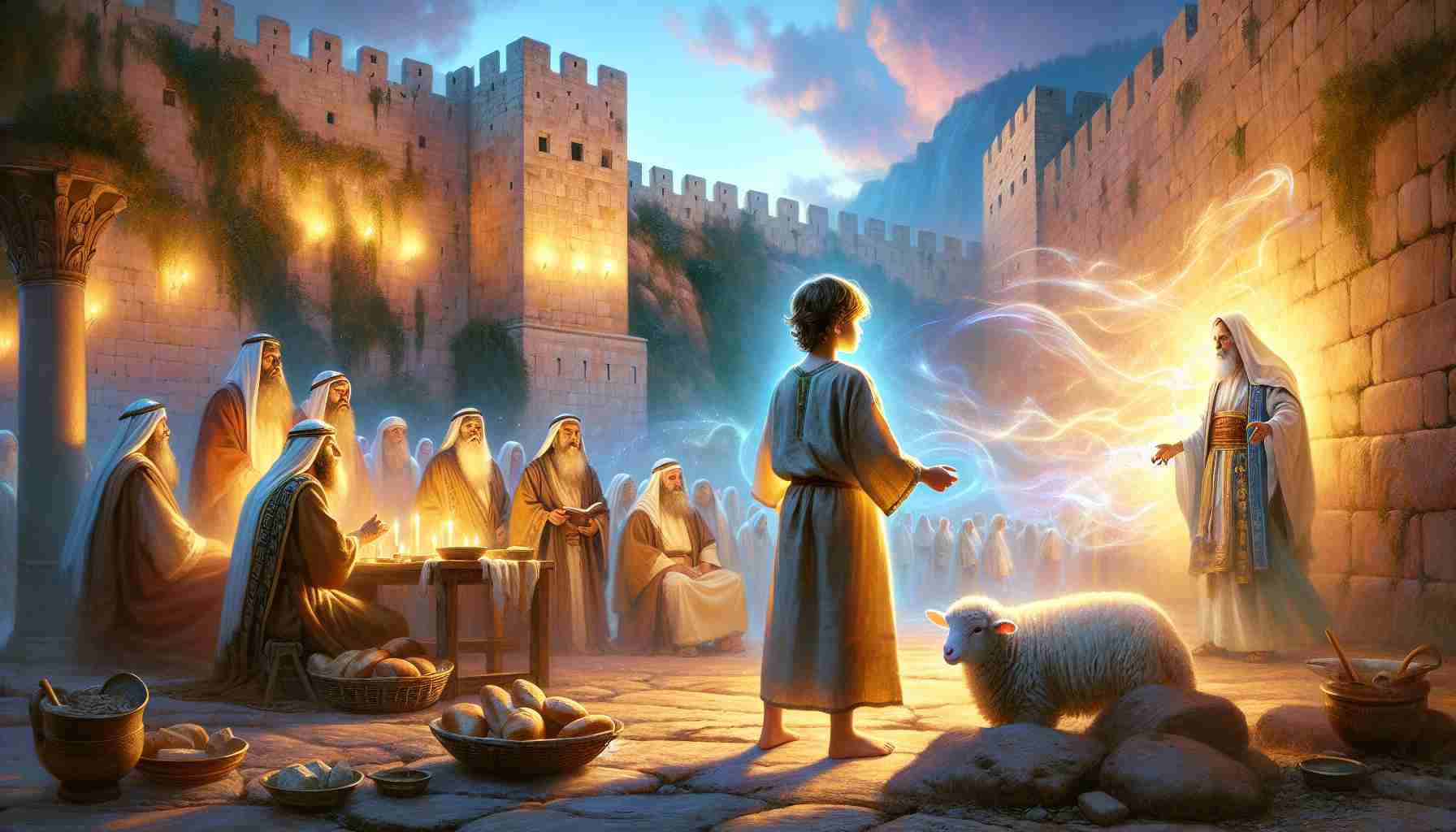

They called me Hodiah, son of a priest, but I never felt like I truly bore the weight of that name… not until the day Malachi came.
I was sweeping the dust from the Temple courtyard when I first heard him. I wasn’t supposed to stop my work, but his voice—it carried like thunder through cracked stone. The other priests tried to ignore him, acting as if his words were just another old prophet stirring trouble. But I saw how their hands trembled slightly, how they avoided meeting his eyes.
“The Lord says, ‘Where is the honor due Me?’” Malachi’s voice rang out. “You offer blind animals for sacrifice. Would you give that to your governor? Why then bring it to God?”
I froze, broom in hand. He was right.
I had seen it with my own eyes. Animals limping into the courtyard, blemished and bruised, tied to ropes with frayed ends. Doves with broken wings. We knew the Torah—God commanded that offerings be perfect, whole. But we had grown lazy, careless. Some said, "It’s too expensive to give the best," or, "This is enough—God understands." I had thought the same.
That night, I couldn’t eat. My father sat beside me by our small oil lamp, reading scrolls with his usual quiet devotion. I stared at my hands—the same hands that had led sick animals to the altar.
“Father,” I asked, my voice barely more than a whisper, “do you think we’ve dishonored God?”
He did not answer at first.
When he finally spoke, he said, “We have become too comfortable with sacred things. We forget who we serve.”
The silence that followed was heavier than any rebuke.
The next day, I returned to the Temple early, before the sun had fully risen. One of the other younger men led in a lamb—the animal limped on its rear leg. I stepped in front of him, heart pounding.
“We can’t offer that,” I said.
He frowned. “It's what the man brought.”
“Then he should bring another. One without blemish. That’s the law… God’s law.”
He stared at me in disbelief, then turned and walked out, the lamb trailing behind.
I felt my hands shaking. I wasn’t a prophet or teacher. I was just the son of a priest. But in that moment, I knew something had changed.
Malachi’s words didn't just call us out—they called us higher.
After that, I noticed small shifts. Others began inspecting the offerings more carefully. My father started each day by praying aloud that we would “remember the holiness of our tasks.” It wasn’t a sudden revival, but it was real.
I carry that rebuke in my heart even now, years later. Pure worship… it’s not just about what we bring, but how we bring it—with honor, with awe, with a heart that remembers who God is.
And sometimes, all it takes to turn a heart is for truth to be spoken where silence once lived.
They called me Hodiah, son of a priest, but I never felt like I truly bore the weight of that name… not until the day Malachi came.
I was sweeping the dust from the Temple courtyard when I first heard him. I wasn’t supposed to stop my work, but his voice—it carried like thunder through cracked stone. The other priests tried to ignore him, acting as if his words were just another old prophet stirring trouble. But I saw how their hands trembled slightly, how they avoided meeting his eyes.
“The Lord says, ‘Where is the honor due Me?’” Malachi’s voice rang out. “You offer blind animals for sacrifice. Would you give that to your governor? Why then bring it to God?”
I froze, broom in hand. He was right.
I had seen it with my own eyes. Animals limping into the courtyard, blemished and bruised, tied to ropes with frayed ends. Doves with broken wings. We knew the Torah—God commanded that offerings be perfect, whole. But we had grown lazy, careless. Some said, "It’s too expensive to give the best," or, "This is enough—God understands." I had thought the same.
That night, I couldn’t eat. My father sat beside me by our small oil lamp, reading scrolls with his usual quiet devotion. I stared at my hands—the same hands that had led sick animals to the altar.
“Father,” I asked, my voice barely more than a whisper, “do you think we’ve dishonored God?”
He did not answer at first.
When he finally spoke, he said, “We have become too comfortable with sacred things. We forget who we serve.”
The silence that followed was heavier than any rebuke.
The next day, I returned to the Temple early, before the sun had fully risen. One of the other younger men led in a lamb—the animal limped on its rear leg. I stepped in front of him, heart pounding.
“We can’t offer that,” I said.
He frowned. “It's what the man brought.”
“Then he should bring another. One without blemish. That’s the law… God’s law.”
He stared at me in disbelief, then turned and walked out, the lamb trailing behind.
I felt my hands shaking. I wasn’t a prophet or teacher. I was just the son of a priest. But in that moment, I knew something had changed.
Malachi’s words didn't just call us out—they called us higher.
After that, I noticed small shifts. Others began inspecting the offerings more carefully. My father started each day by praying aloud that we would “remember the holiness of our tasks.” It wasn’t a sudden revival, but it was real.
I carry that rebuke in my heart even now, years later. Pure worship… it’s not just about what we bring, but how we bring it—with honor, with awe, with a heart that remembers who God is.
And sometimes, all it takes to turn a heart is for truth to be spoken where silence once lived.